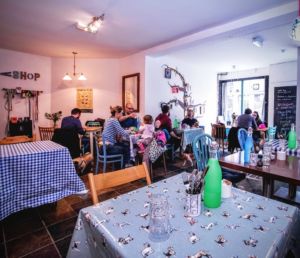Most of us are experiencing increased levels of stress, but it doesn’t have to be this way. Here’s how to take back control.
One of the great advantages of being self-employed is having the freedom to make all your own decisions. You can shape the direction of your business and control what you do each day.
Despite having most of the control over their daily lives, business owners are feeling more stressed and less in control. Dedication to excellent customer service requires constant contact. Mobile technology requires instant response. As a result, a large part of the day can be spent on unplanned work. And the priority work for our business doesn’t always get done no matter how many plans or to-do lists we create.
“Why is the problem getting more prominent as our technology gets smarter?”
Stress and frustration
‘Doing it all’ can be both frustrating and stressful. And once that stress kicks in it can be hard to think straight. Hard to make the right decisions and hard to be strategic.
Too often we try to reduce the stress by working longer hours. But of course, in the long run, that’s bad for us and bad for our business.
So what is going on? Why are so many professionals feeling this stress? And why is the problem getting more prominent as our technology gets smarter?
The business world has changed
The way we do work has changed radically in recent years. But the problem is that few of us have adjusted the way we approach work to reflect this. Here is a list of some of these changes:
- A constant stream of requests on multiple devices
- Instant communication has created an expectation of immediate response
- Our contactable hours are longer
- We have decreased downtime to refresh and reset
- All notifications disrupt us to the same extent
- Our mobile devices are used in both work and personal lives
We need additional skills to deal with our changed world. And we need to strategically adjust the way we approach the working week.

A different approach to work
Most people in business apply good time management skills such as planning, scheduling and creating task lists. But these skills were designed for a more straightforward nine to five working day. There was a time when we left our work behind us and refreshed when we went home. We read books or newspapers on our commute and the only technology in our bedroom was an alarm clock.
Nowadays because of the constant flow of new work and requests throughout the day, we need to be able to: 1) continuously reassess priorities, 2) stay focussed on planned work, and 3) say no to less important work.
“Set weekly goals, so you have ongoing clarity about your priorities.”
1. Decision management
To reassess priorities quickly use a simple question: “If I say yes to this new request what tasks am I saying no to?” In a split second, you clarify what work is not going to get done if you take on an unplanned task.
But to make the correct decisions, you need to do a bit of background thinking and planning about the overall goals for your business. Then set weekly goals, so you have ongoing clarity about your priorities. Then your daily and hourly decisions about what to prioritise will be well informed.
2. Attention management
It can be hard to stay tuned in throughout the day to continually realise what is happening and where your time is going. This is because we often react to new requests without thinking of the time implications or we can spend too long on a planned task.
Who hasn’t done a quick email check and spent an hour or two longer than planned? The work you do might be important, but it may not be the most important thing at that moment in time.
To counteract this frequent use, you should employ checkpoints. Assess your progress as you move from one task to another. Ask yourself:
- Am I still on track?
- If not why not?
- What (or who) distracted me?
- How can I stop this happening again?
If you are spending too long on tasks, try using a timer to limit yourself and give yourself a chance to move on.
“Mornings are often best for working alone on tasks that require deep-thinking. Energy levels can drop in the afternoon.”
3. Energy management
Recognise the importance of refuelling and refreshing. Take breaks, eat good food, stay hydrated. These factors have an impact on our ability to focus as the day progresses. They also affect our ability to make the right decisions.
Be strategic about your day. Understand the times when you focus best and protect this time for the most critical work. Mornings are often best for working alone on tasks that require deep-thinking. Energy levels can drop in the afternoon so use this time for interaction with others which helps maintain your focus.
Be proactive, take control
In summary – the world we do business in has changed, so we need to change the way we do business. Reduce stress by taking control:
- Be clear about your priorities
- Re-evaluate throughout the day
- Use your most productive time for your most important jobs
- Say no sometimes (see our top tips on saying no)
- Manage your attention using checkpoints and timers
- Manage your energy by taking breaks and refuelling

By making some simple changes, you can take back control of your time. Be proactive, and your work life will be less stressful and more productive.
This guide is by Moira Dunne, BeProductive.ie.
This post was originally published here - https://www.thinkbusiness.ie/articles/how-to-reduce-stress-at-work-and-home/ on











